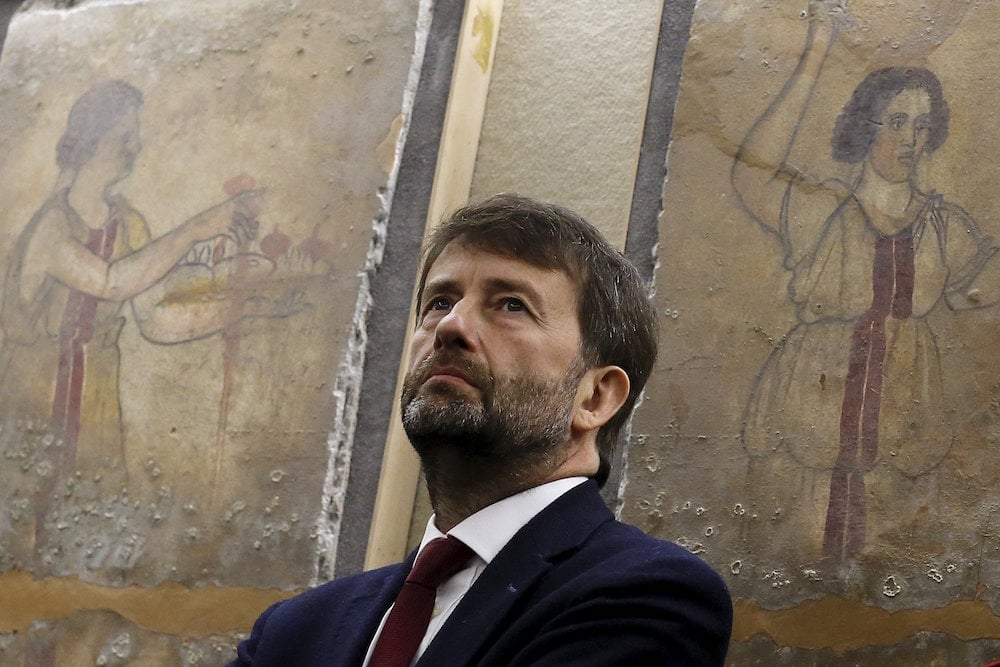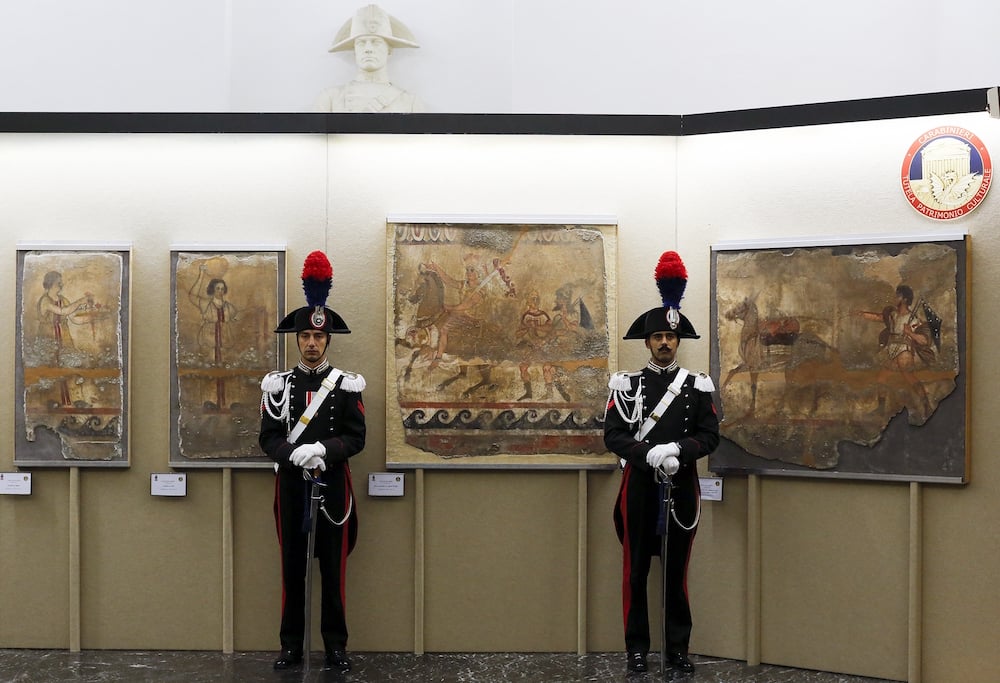Law & Politics
Priceless Looted Ancient Frescoes Returned to Italy
A road accident led to their rediscovery.

A road accident led to their rediscovery.

Henri Neuendorf


Italian police guard the frescos at the unveiling.
Photo: thehistoryblog.com
A group of ancient frescoed stone slabs have gone on display in Italy for the first time since they were looted by an infamous antiquities trafficker known as “The Captain.”
According to Reuters, the artworks, dating from 400 BC, were illegally excavated from the ancient Greek site of Paestum, located near Naples.
The recovery of the priceless paintings is the result of a 10-year police investigation conducted by a dedicated task-force set up after authorities discovered thousands of photographs of illicit antiquities in a car following a road accident that took the notorious smuggler’s life.
Police eventually traced the slabs to the Italian-Swiss border where they were seized and sent back to Rome.

Italian culture minister Dario Franceschini at the press conference of the unveiling of the frescos.
Photo: thehistoryblog.com
The frescoes depict a royal woman and her female slaves, a warrior on horseback, and a young man walking with a donkey. Each artwork bears a large crack through the middle—damage left by the smugglers who cut the slabs in half to facilitate transportation.
Gabriel Zuchtriegel, director of the Paestum archaeological site, called the looting and trade of illicit antiquities “devastating.”
“I invite you to appreciate the beauty of this tomb, but also to reflect on this illicit business and the market that creates opportunities for it,” he said.

The slabs are thought to have been looted from the ancient city of Paestum, near Naples.
Photo: Oliver Bonjoch via Wikimedia Commons
At a news conference Italian Culture Minister Dario Franceschini used the occasion to highlight the plundering of antiquities in Syria by ISIS, who use the practice to raise money for terrorist activities.
Led by Franceschini, the Italian government was the primary advocate behind the United Nation’s approval of a resolution to deploy Blue Helmet troops to guard heritage sites around the world.